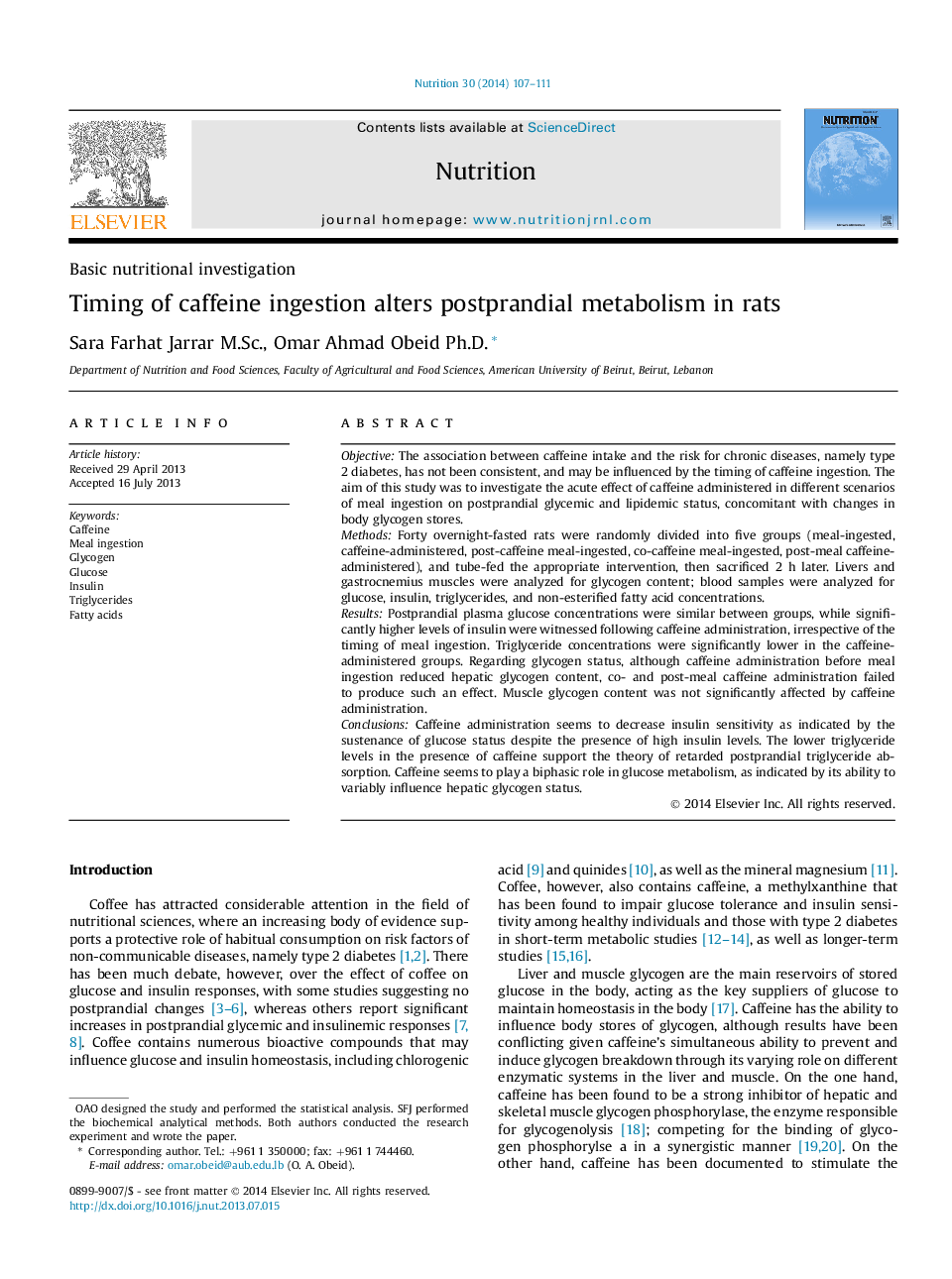| کد مقاله | کد نشریه | سال انتشار | مقاله انگلیسی | نسخه تمام متن |
|---|---|---|---|---|
| 6089748 | 1208551 | 2014 | 5 صفحه PDF | دانلود رایگان |
ObjectiveThe association between caffeine intake and the risk for chronic diseases, namely type 2 diabetes, has not been consistent, and may be influenced by the timing of caffeine ingestion. The aim of this study was to investigate the acute effect of caffeine administered in different scenarios of meal ingestion on postprandial glycemic and lipidemic status, concomitant with changes in body glycogen stores.MethodsForty overnight-fasted rats were randomly divided into five groups (meal-ingested, caffeine-administered, post-caffeine meal-ingested, co-caffeine meal-ingested, post-meal caffeine-administered), and tube-fed the appropriate intervention, then sacrificed 2 h later. Livers and gastrocnemius muscles were analyzed for glycogen content; blood samples were analyzed for glucose, insulin, triglycerides, and non-esterified fatty acid concentrations.ResultsPostprandial plasma glucose concentrations were similar between groups, while significantly higher levels of insulin were witnessed following caffeine administration, irrespective of the timing of meal ingestion. Triglyceride concentrations were significantly lower in the caffeine-administered groups. Regarding glycogen status, although caffeine administration before meal ingestion reduced hepatic glycogen content, co- and post-meal caffeine administration failed to produce such an effect. Muscle glycogen content was not significantly affected by caffeine administration.ConclusionsCaffeine administration seems to decrease insulin sensitivity as indicated by the sustenance of glucose status despite the presence of high insulin levels. The lower triglyceride levels in the presence of caffeine support the theory of retarded postprandial triglyceride absorption. Caffeine seems to play a biphasic role in glucose metabolism, as indicated by its ability to variably influence hepatic glycogen status.
Journal: Nutrition - Volume 30, Issue 1, January 2014, Pages 107-111
